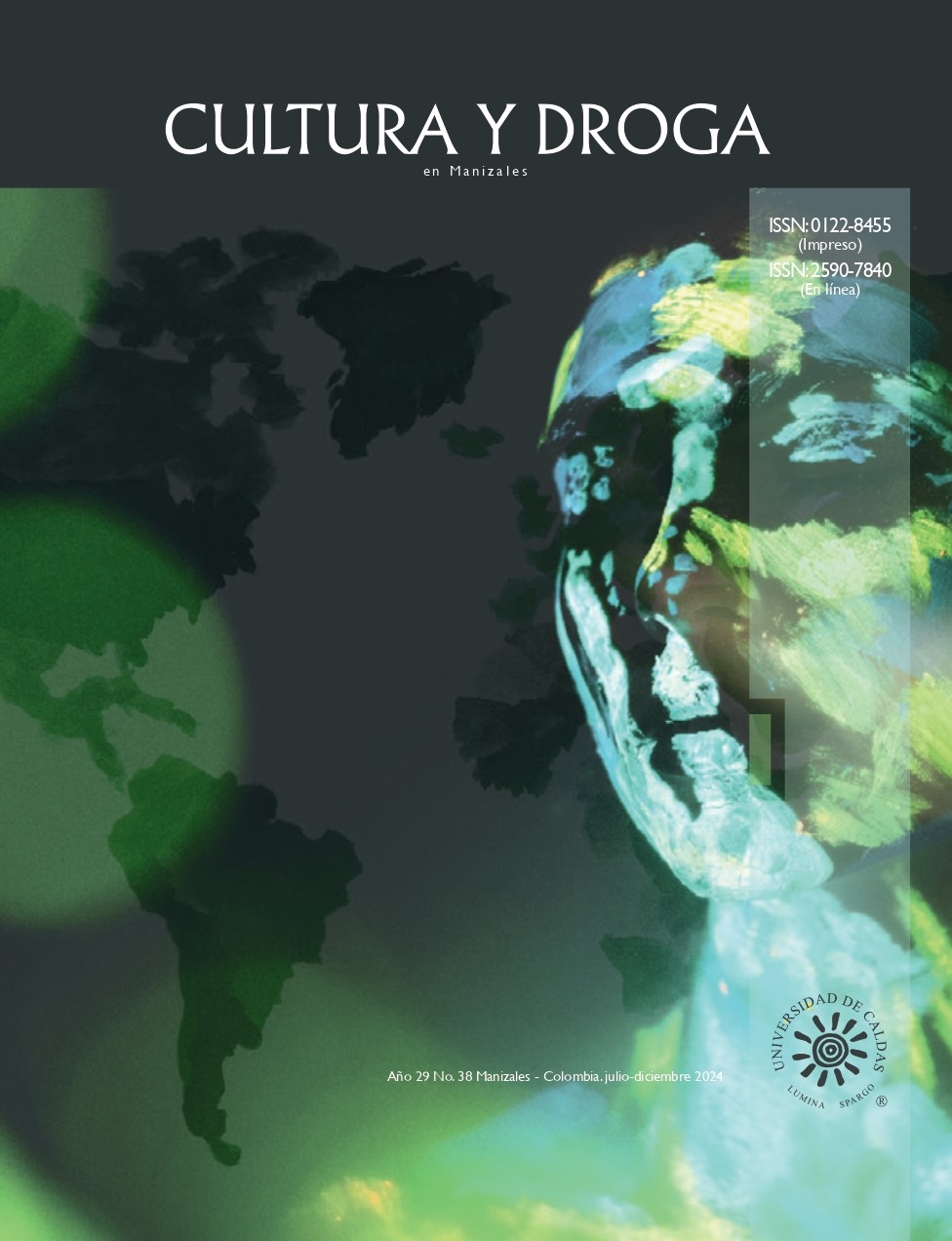Authors
Abstract
Drug Policies have not always been formulated based on the best available evidence, the evidence is produced and thought “within” the paradigms… this may explain the insistence on some approaches such as the “war on drugs” and “criminalization of users” under the criminal law, although its results have not been at all successful throughout the 20th century. The dimension of political and scientific change will be analyzed at the level of the dominant Paradigm, shedding light within the network of interactions of the community of professionals itself, and how the decisions were developed in the passage from a model focused on prohibition or criminal law, to another focused on rights, human development and public health, a path with contradictions and new challenges that demonstrate that a law is not enough to change model. In recent years, Uruguay has been experiencing a process of building alternatives in drug policies, under the principle of “common responsibility and shared management”, the promotion of “Risk and Harm Reduction” (RRDD) strategies applied to the field of Public Health, Coexistence, social development, including Criminal Policy. A set of national and comparative evidence on the decision-making processes of the new policy will also be analyzed, many of which have contributed to the foundation of Law 19,172 on the Regulation and Control of the cannabis market in Uruguay, with the purpose of reviewing its relevance. and the challenges that these new devices pose to public policy.
References
Científica. (2012). Aporte universitario al debate nacional sobre drogas. https://pmb.parlamento.gub.uy/pmb/opac_css/index.php?lvl=notice_display&id=79674
Dente, B. y Subirats, J. (2014). Decisiones Públicas. Grupo Planeta.
Junta Nacional de Drogas y Presidencia de la República Uruguay. (2011). Documento de la Estrategia Nacional sobre el Problema de las Drogas. http://www.gub.uy/junta-nacional-drogas
Dunn, W. N. (2018). Public Policy Analysis: An Integrated Aproach. Routledge.
Dahl, R. A. (2005). Who Governs? Democracy and Power in The American City. Yale University Press.
Foucault, M. (1968). Las palabras y las cosas. Una arqueología de las ciencias humanas. Siglo XXI.
Hall, P. (1993). Policy Paradigms, Social Learning, and the State: The Case of Economic Policymaking in Britain. Comparative Politics, 25(3), 275-296.
Howlett, M., & Cashore, B. (2009), The Dependent Variable Problem in the Study of Policy Change: Understanding Policy Change as a Methodological Problem. Journal of Comparative Policy Analysis: Research and Practice, 11(1), 33-46. https://api.taylorfrancis.com/content/chapters/edit/download?identifierNa me=doi&identifierValue=10.4324/9780429441639-10&type=chapterpdf
Kuhn, T. (1971). La estructura de las Revoluciones Científicas. Fondo de Cultura Económica.
Uruguay, Poder Ejecutivo, Consejo de Ministros. (7 de enero de 2014). Ley 19.172. Establécese el control y la regulación por parte del Estado de la importación, exportación, plantación, cultivo, cosecha, producción, adquisición, almacenamiento, comercialización, distribución y consumo de marihuana y sus derivados. Diario Oficial n.° 28.878. https://www.impo.com.uy/diariooficial/2014/01/07/4
Uruguay, Poder Legislativo. (20 de diciembre de 2019). Ley 19.487. Declárense de interés público las acciones tendientes a proteger, promover y mejorar la salud publica mediante productos de calidad controlada y accesibles, en base a cannabis o cannabinoides, así como el asesoramiento medico e información sobre beneficios y riesgos de su uso. Diario Oficial n.° 30.353. https://www.impo.com.uy/diariooficial/2020/01/08/3
Lindblom, C. E. (1959). The Science of “Muddling Through”. Public Administration Review, 19(2), 79-88. https://www.taylorfrancis.com/chapters/edit/10.4324/9781351179522-4/science-muddling-charles-lindblom
Maldonado-Maldonado, A. (2005). Comunidades epistémicas: una propuesta para estudiar el papel de los expertos en la definición de políticas en educación superior en México, Revista de la Educación Superior, 34(134), 107-122. https://dialnet.unirioja.es/servlet/articulo?codigo=1211888
Smith, H. (1988). Symposium Editors´ Introduction. Policy Sciences.
Subirats, J. (2008). Análisis y gestión de políticas públicas. Ariel.
Weible, C., Sabatier, P. A., & McQueen, K. (2009). Themes and Variations: Taking Stock of the Advocacy Coalition Framework. Policy Studies Journal, 37(1), 121-140. https://onlinelibrary.wiley.com/doi/abs/10.1111/j.1541-0072.2008.00299.x

 PDF (Español)
PDF (Español)
 FLIP
FLIP






















